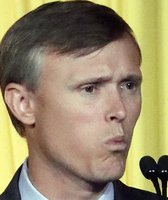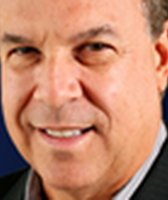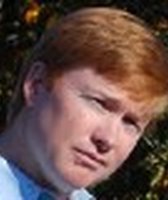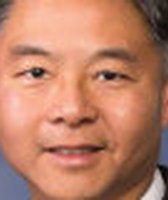Stand up for the facts!
Our only agenda is to publish the truth so you can be an informed participant in democracy.
We need your help.
I would like to contribute
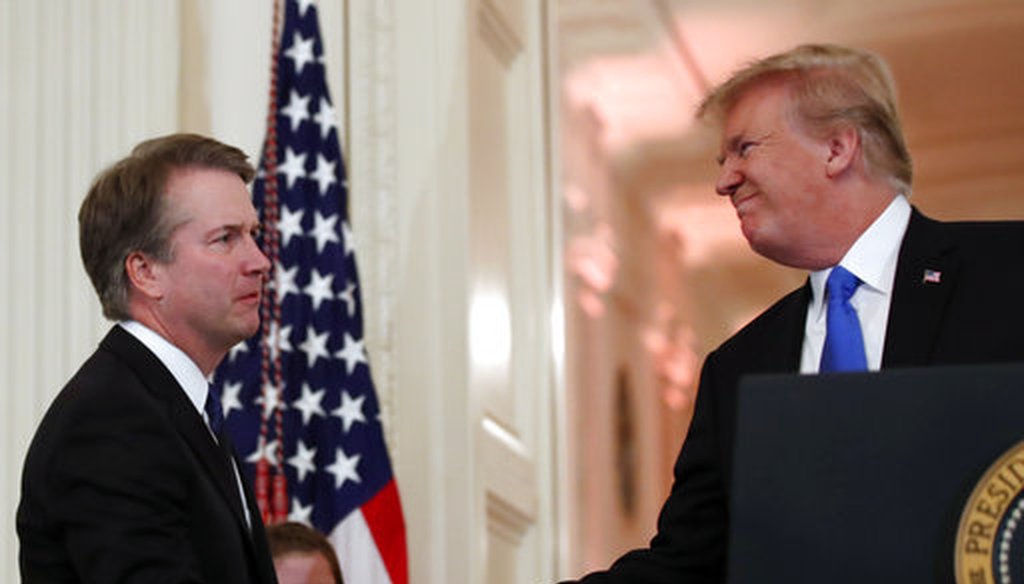
President Donald Trump shakes hands with Judge Brett Kavanaugh, his Supreme Court nominee, in the East Room of the White House, July 9, 2018. (AP Photo/Alex Brandon)
This story was updated at 4:30 p.m. July 10.
President Donald Trump has appointed Judge Brett Kavanaugh to fill the Supreme Court seat that will be vacated by Justice Anthony Kennedy, who announced his retirement on June 27.
Trump announced his pick from the East Room of the White House on Monday night.
Kavanaugh, 53, has been a federal judge for the D.C. Circuit Court of Appeals since 2006. He graduated cum laude with a B.A. from Yale University, where he also attended law school.
After graduating from Yale, Kavanaugh clerked for two federal judges, Walter Stapleton and Alex Kozinski, before completing a yearlong fellowship at the office of U.S. Solicitor Kenneth Starr.
At Starr’s office, Kavanaugh supervised the investigation into whether Clinton aide Vince Foster had been murdered or committed suicide and concluded that it was the latter.
Following his year with Starr, Kavanaugh was a Supreme Court clerk for Kennedy for the court term starting October 1993.
Kavanaugh is the second Supreme Court Justice that President Trump has had the opportunity to appoint; a year ago, Trump appointed Neil Gorsuch, a fellow former Kennedy law clerk, to succeed Antonin Scalia. The Senate voted 54-45 to confirm Gorsuch on April 7, 2017.
Kavanaugh has close ties with Former President George W. Bush. In 2000, he was on the legal team that helped to stop the Florida recount and secure Bush the presidency. Three years later, he became White House Staff Secretary. In 2004, he married Ashley Estes, who served as Bush’s personal secretary.
Kavanaugh and Bush were close enough that in his memoir, Bush recalled how Kavanaugh convinced him to nominate John Roberts to the Supreme Court in 2005 over two other contenders. A year later, Kavanaugh was confirmed to his D.C. Circuit seat.
Although Kavanaugh’s deep ties to Bush might now be considered moderate, many conservatives approve of his judicial ideology. He has been called an "originalist" by conservative commentator Matt Schlapp and in a National Review perspective piece.
On abortion-related issues, Kavanaugh wrote a dissenting opinion in a 2017 case that concerned whether a pregnant 17-year-old being held by immigration authorities was allowed to leave their custody to obtain an abortion. The court ruled in agreement with a Texas judge that the teenager was legally entitled to an abortion, while Kavanaugh dissented by asking the government release the girl to an adult sponsor.
On executive authority, Kavanaugh was the primary author of the section of the 1998 Starr report that detailed grounds for a possible impeachment of then-President Bill Clinton.
But Kavanaugh’s position changed over the next decade. He wrote a 2009 law review article that suggested a sitting president should not be subject to criminal investigations, which may have implications for the current Mueller investigation.
"Like civil suits, criminal investigations take the president’s focus away from his or her responsibilities to the people. And a president who is concerned about an ongoing criminal investigation is almost inevitably going to do a worse job as president," Kavanaugh wrote.
Kavanaugh has served on the D.C. Circuit for a dozen years and authored nearly 300 opinions, which will be scrutinized as the confirmation process plays out. During Kavanaugh’s D.C. Circuit confirmation hearing, Senator Dick Durbin, D-Ill., called Kavanaugh "the Forrest Gump of Republican politics" because of his knack for inserting himself into Washington political battles.
Like Gorsuch, Trump selected Kavanaugh from a public list of potential Supreme Court nominees, although Kavanaugh was added to that list in late 2017. Trump made the list with the help of conservative organizations, including the Federalist Society.
That fact is deeply concerning to Senate Minority Leader Chuck Schumer, D-N.Y., who said in an interview on CBS This Morning that the Federalist Society "is run by a man named Leonard Leo whose goal in life is to repeal Roe v. Wade."
(Leo, who serves as executive vice president of the Federalist Society, is currently on leave to advise Trump on judicial selection. In 2016, conservative lawyer Ed Whalen said "no one has been more dedicated to the enterprise of building a Supreme Court that will overturn Roe v. Wade than the Federalist Society’s Leonard Leo." Leo recently stated in an interview that he believes warnings from Democrats that Republicans are trying to overturn Roe are "speculation.")
Schumer declared he would oppose the Kavanaugh nomination "with everything I’ve got."
Activists responded to Trump’s announcement with protests outside of the U.S. Supreme Court.
Mark Tushnet, Harvard University law professor, told PolitiFact that it’s likely "the Democrats are going to push as hard as they can to get Judge Kavanaugh’s materials from his time in the Bush White House, and the Republicans are going to resist."
Tushnet suggested such a tactic — one of a few open to Democrats — could slow down the confirmation process.
Geoffrey Stone, a University of Chicago law professor, said presidents are increasingly nominating justices who will rule in favor of their party, and Trump’s pick of Kavanaugh to firm up a conservative judicial tilt is no different.
"We are seeing the culmination of a 40 year effort, since the election of Reagan, to produce this moment," he said. "The stakes are extremely high."
Our Sources
Linked in story







